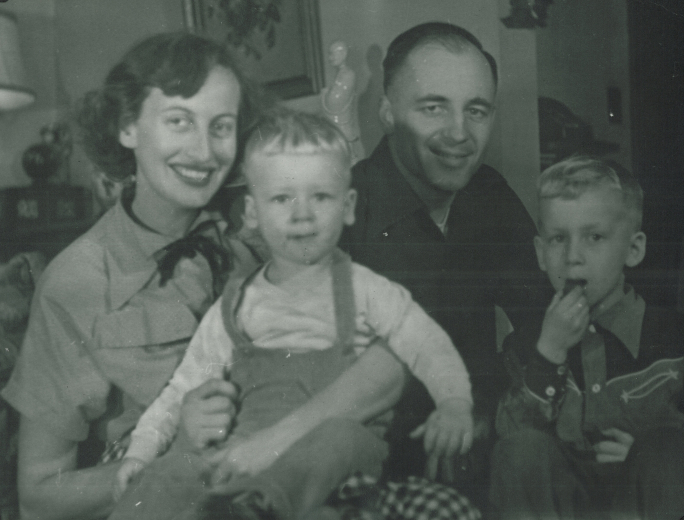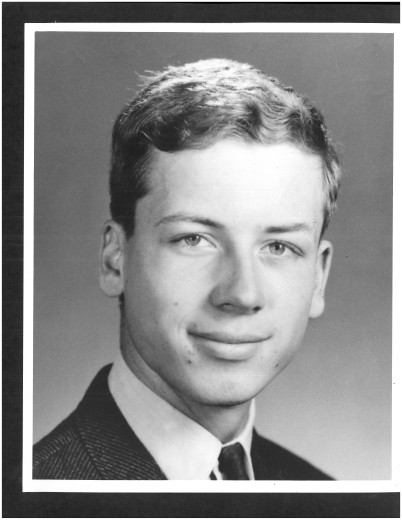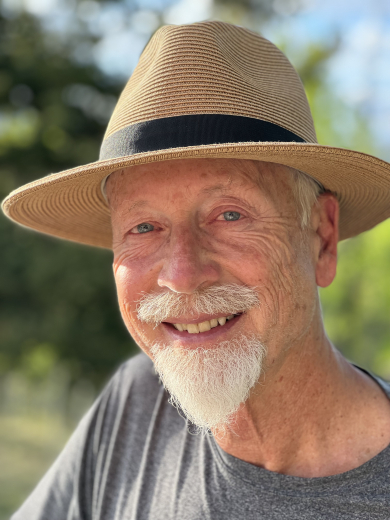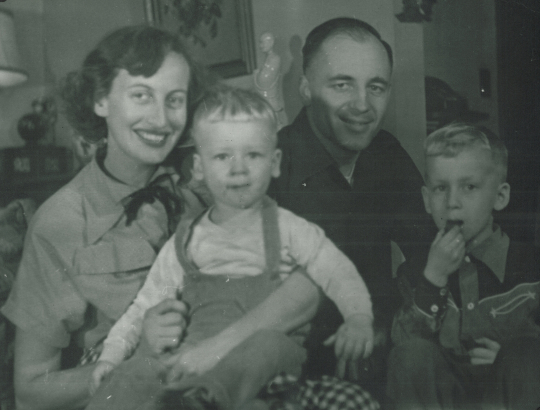Robert Janowski was a doctor who served Denver's gay community at the height of the HIV crisis when little was known about the disease, and there was almost no chance of survival beyond a few years.
Robert “Bob” Raymond Janowski was born in Passaic, New Jersey, on July 14, 1949. He has an older brother, a younger brother, and a younger sister. They were all delivered by their uncle, who was a general practitioner. His father had a career in the military, so the family regularly moved from place to place. Bob spent almost every school year in a different place and enjoyed seeing different parts of the country and the world. Bob’s interest in learning was very strong and, because of his uncle being a doctor, he remembers thinking about studying medicine as young as eight years old. It was around this age that he also realized he was gay.
Between third and sixth grade, his father was based in Colorado Springs; in fourth grade, he became very interested in Colorado history and was soon able to join the first group of gifted students at his school. The family moved to Germany for the second time during his sophomore year of high school, and he would remain there for three years. The family home was very near a large forest, and Robert liked to wander around in nature by himself for hours. He would maintain a lifelong love of the outdoors. Bob was very engaged with academics in high school and was among the top students of his 1966 graduating class. He would remain lifelong friends with many of the people he met during his studies there.
After high school, Bob was accepted into the Massachusetts Institute of Technology, where he majored in life sciences to prepare for a career in medicine. While he had long been an exceptional student, his first year in college was a huge adjustment; he found himself getting Cs and Ds until he was able to adapt to the more difficult science courses. As usual, Bob eventually thrived and was accepted to medical school at the University of Michigan. It was not until his senior year of medical school that he came out as gay. At the same time, he began getting more politically active, first with the Gay Academic Union and then with other political groups. It was at the Gay Academic Union that he met Phil Nash, who would become his lifelong partner and fellow activist.
After medical school and a surgical internship in Texas, Bob and Phil headed to Europe, where they spent six months touring around different countries on bicycles and working as farm labor harvesting grapes in France. Upon their return, they decided to try living and working in Denver. Bob was soon accepted into residency as a doctor of family medicine at Mercy Hospital. During his interview, he wanted to be honest about the fact that he was going to be active in LGBTQ+ politics.
“I really have to tell you one more thing. I'm going to be. I'm going to be politically gay. I'm going to be a gay physician, and I want to make sure that's OK with you and the sisters [Sisters of Mercy]. And he [Carl Flaxer MD] said, ‘You do your job and that’s all you need.’” - Bob Janowski Oral History, 2015
While working at Mercy Hospital, Bob saw this as an opportunity to build relationships within the community. That meant filling huge gaps that had existed between those in the medical profession and in the LGBTQ+ community.
“Mercy was considered a family hospital and my thought was, ‘OK my family is the gay community.’ …I started accumulating all these gay men and lesbian women as my patients. …While all the other residents were trying to fill their schedules, I was overflowing.” - Bob Janowski Oral History, 2015
By 1975, local activist Gerald Gerash was pushing for the establishment of a local organization to provide a sense of community as well as active support to the gay community in Colorado. Soon after, both Bob and Phil became involved in the establishment of the Gay Community Center of Colorado. It is now known simply as The Center on Colfax. In 1977, Bob joined an effort to get the District Attorney and City Council to formally investigate the death of Eugene Levy, a member of the LGBTQ+ community, at the hands of a Denver police officer. The same year, Bob had begun writing medical advice for the LGBTQ+ community in a local publication. In 1978, Bob attended the first National Gay Health Conference in Washington, D.C. While the community was beginning to gain more respect and recognition within Colorado and the country, a medical crisis was about to pose a widespread and deadly problem.
In the early 1980s, doctors began seeing groups of young, gay men dying of rare lung diseases and cancers. It appeared their immune systems had no ability to fight these off. This would eventually be recognized as the AIDS epidemic. At dthe time, once a doctor determined someone had AIDS, there was little chance they would live beyond two years. As more and more people died of AIDS, fear and prejudice against people with AIDS grew. Some politicians even suggested locking away AIDS patients. For example, 1992 Republican Senate candidate, Mike Huckabee, responded to an Associated Press survey that "we need to take steps that would isolate the carriers of this plague." Some doctors were afraid to treat them. People like Bob had to provide what comfort they could to their patients while science had few answers regarding the new disease.
“To see all these people dying, to be responsible for helping them die, and for them to be so young and beautiful – it’s hard to describe and I don't think that very many physicians experience that." - Bob Janowski Oral History, 2015
While he was taking care of a growing number of patients, he would also speak to legislators, insurance companies, and medical groups regarding the needs of those suffering and how to make new treatments available to them. By the early 1990s, a class of drugs called antiretrovirals started to become available and gave patients a much better chance of living for years after diagnosis. In 1999, the health group he was working with closed, and he decided to close his own office and pursue another career.
Bob started volunteering for an organization that recorded medical books for blind and dyslexic people. As a doctor, he was able to pronounce many of the big medical terms in the books that the average person could not. Bob also got to work with other people who were recording books on all kinds of subjects, like history and math, and they would all share with each other the things they were learning across multiple subjects. He was hired as an employee in 2003 and continued that work for over a decade. Shortly after retiring, Bob was diagnosed with bone cancer of the skull but managed to survive it. He and Phil went on to contribute to education programs through University of Denver's Osher Lifelong Learning Institute and still remain together in Denver after 50 years.
general practitioner - a doctor who does not practice a specialty, but rather general health care
internship - an advanced student or graduate usually in a professional field (such as medicine or teaching) gaining supervised practical experience (as in a hospital or classroom)
antiretrovirals - a special class of drugs designed to fight retroviruses like HIV
Have you ever lived in different cities or different countries? Did it change the way you see people or how you think about things?
Do you remember a time when you were very sick and someone helped you? How did that make you feel?
Rocky Mountain News Clipping File
DPL Clipping File (Available upon request)




